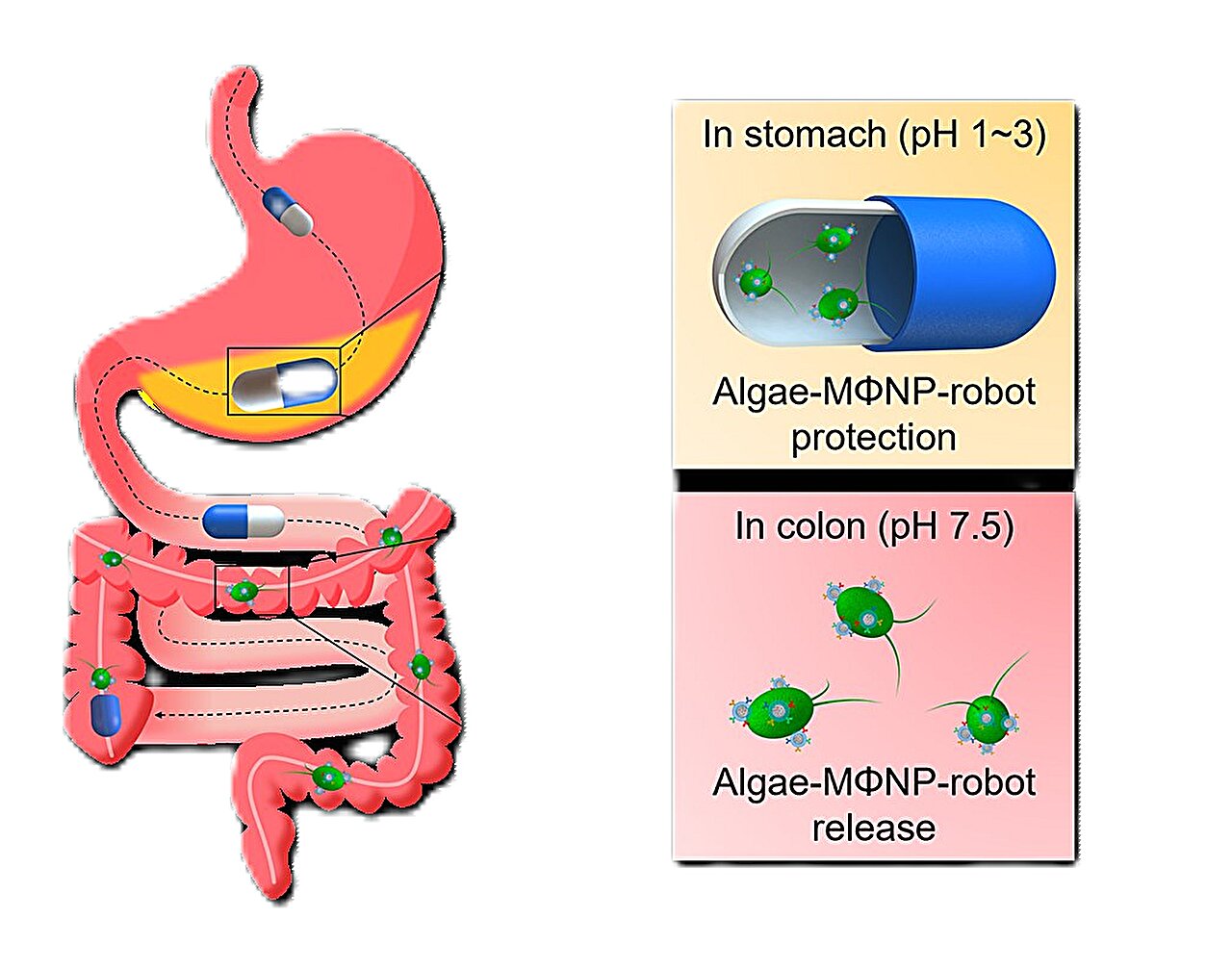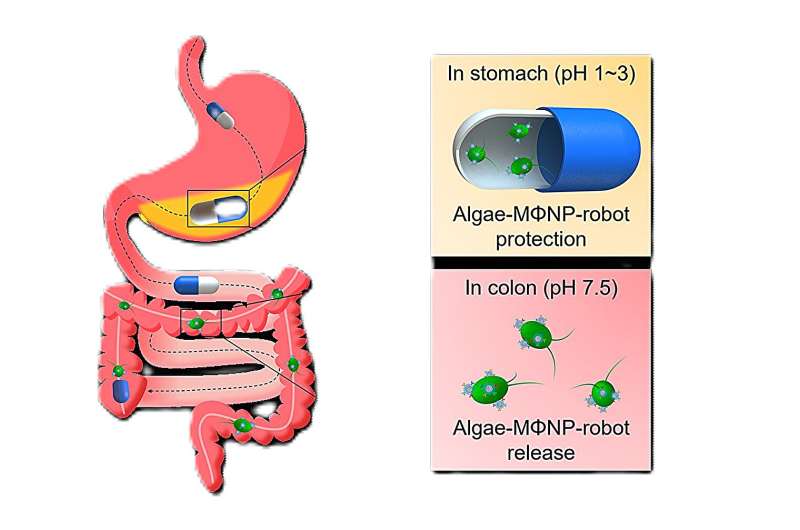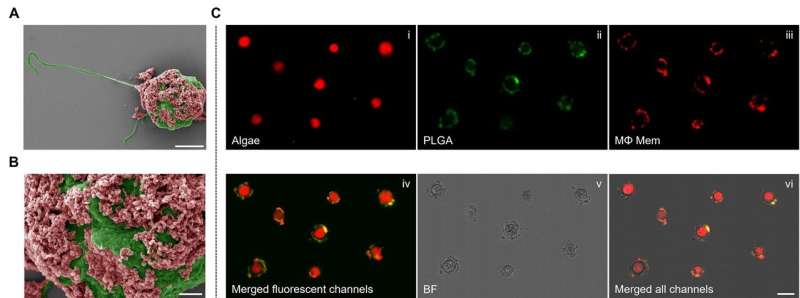

Engineers at the University of California San Diego have developed a pill that releases microscopic robots, or microrobots, into the colon to treat inflammatory bowel disease (IBD). The experimental treatment, given orally, has shown success in mice. It significantly reduced IBD symptoms and promoted the healing of damaged colon tissue without causing toxic side effects.
The study was published June 26 in Science Robotics.
IBD, an autoimmune disorder characterized by chronic inflammation of the gut, affects millions of people worldwide, causing severe abdominal pain, rectal bleeding, diarrhea and weight loss.
It occurs when immune cells known as macrophages become overly activated, producing excessive levels of inflammation-causing proteins called pro-inflammatory cytokines. These cytokines, in turn, bind to receptors on macrophages, triggering them to produce more cytokines, and thereby perpetuating a cycle of inflammation that leads to the debilitating symptoms of IBD.
Now, researchers have developed a treatment that successfully keeps these cytokine levels in check. A team led by Liangfang Zhang and Joseph Wang, both professors in the Aiiso Yufeng Li Family Department of Chemical and Nano Engineering at UC San Diego, engineered microrobots composed of inflammation-fighting nanoparticles chemically attached to green algae cells.
The nanoparticles absorb and neutralize pro-inflammatory cytokines in the gut. Meanwhile, the green algae use their natural swimming abilities to efficiently distribute the nanoparticles throughout the colon, accelerating cytokine removal to help heal inflamed tissue.

What makes these nanoparticles so effective is their biomimetic design. They are made of biodegradable polymer nanoparticles coated with macrophage cell membranes, allowing them to act as macrophage decoys. These decoys naturally bind pro-inflammatory cytokines without being triggered to produce more, thus breaking the inflammatory cycle.
“The beauty of this approach is that it’s drug-free—we just leverage the natural cell membrane to absorb and neutralize pro-inflammatory cytokines,” said Zhang.
The researchers have ensured that their biohybrid microrobots meet rigorous safety standards. The nanoparticles are made of biocompatible materials, and the green algae cells used in this study are recognized as safe for consumption by the U.S. Food and Drug Administration.
The microrobots are packed inside a liquid capsule with a pH-responsive coating. This coating remains intact in the acidic environment of the stomach acid, but dissolves upon reaching the neutral pH of the colon. This ensures that the microrobots are selectively released where they are needed most.
“We can direct the microrobots to the diseased location without affecting other organs,” said Wang. “In this way, we can minimize toxicity.” The capsule keeps the functionalized algae in the liquid phase until their release.
The capsule was administered orally to mice afflicted with IBD. The treatment reduced fecal bleeding, improved stool consistency, reversed IBD-induced weight loss and reduced inflammation in the colon, all without apparent side effects.
The research team is now focusing on translating their microrobot treatment into clinical studies.
More information:
Zhengxing Li et al, Biohybrid microrobots regulate colonic cytokine and epithelium barrier in inflammatory bowel disease, Science Robotics (2024). DOI: 10.1126/scirobotics.adl2007. www.science.org/doi/10.1126/scirobotics.adl2007
Provided by
University of California – San Diego
Citation:
Microrobot-packed pill shows promise for treating inflammatory bowel disease in mice (2024, June 26)
retrieved 27 June 2024
from https://phys.org/news/2024-06-microrobot-pill-inflammatory-bowel-disease.html
This document is subject to copyright. Apart from any fair dealing for the purpose of private study or research, no
part may be reproduced without the written permission. The content is provided for information purposes only.